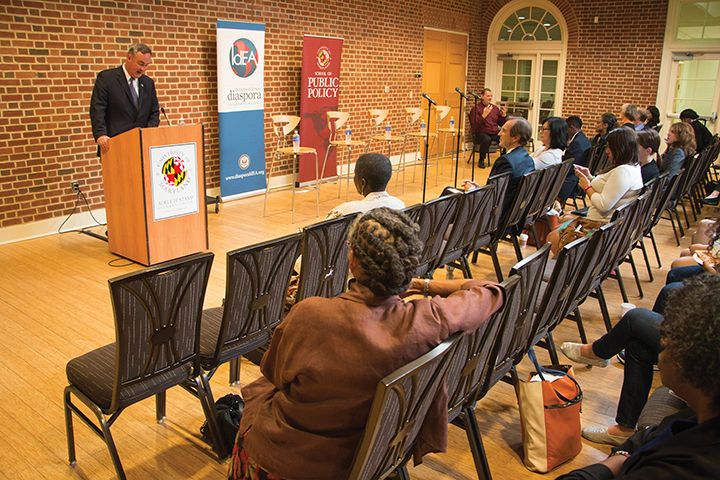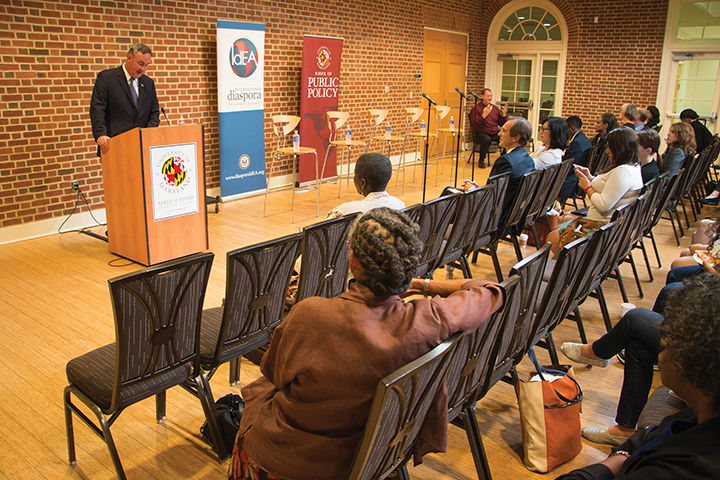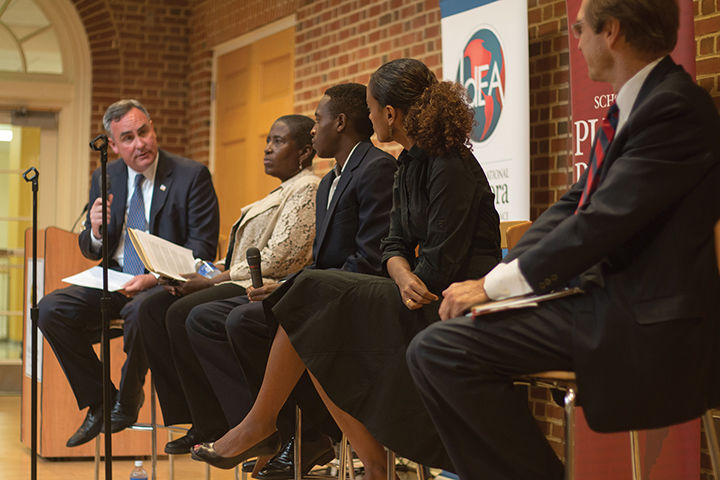Kikanae Punyua was 17 years old when he moved to this state from Kenya in 2009. He said he came to this university to better his life but was determined to give back to his home village.
Last year, he raised $15,000 to create a nursing clinic in his Kenyan village where women could safely give birth under professional care. Additionally, he created a company that generates income for poor women in the village by selling their bead jewelry in the U.S.
Punyua shared his story at Thursday’s State Department-sponsored Diaspora Tour event at Stamp Student Union, which included panelists from Voice of America and the Diaspora African Women’s Network.
“Growing up in Kenya, I saw so many challenges faced by mostly women and girls, so when I came here, I saw a chance to give back to the people who I left behind and also be a leader to inspire other young leaders to come up with solutions to face the challenges,” the senior economics major said.
The event was designed to inform young people about diasporas, which are communities of people living outside their countries of origin who often maintain a connection with their home countries.
Andrew O’Brien, special representative for global partnerships at the State Department, said there has been a major shift in the way the developed world creates economic growth in poor countries.
In the 1960s, he said more than 70 percent of assistance came in the form of official government aid. But in today’s connected world, O’Brien said, individual remittances and private investments outpace government aid at a 10-to-1 rate and are largely fueled by diaspora communities.
“In cities and towns across America, diaspora communities are engaging with their countries of origin,” O’Brien said. “Whether they’re sending money back to relatives through remittances or basic survival needs, investing in local businesses, donating volunteering or introducing new technologies.”
Sara Gallagher, who graduated with a master’s degree in public policy in May and works as a program officer for the International Diaspora Engagement Alliance, had the idea to bring the Diaspora Tour to this university and organized the event.
“This is an incredibly diverse campus as far as colleges go, and I want UMD students to see what other people in their communities are doing to engage diasporas and see what ways they can get involved,” Gallagher said.
The tour is promoting the first Global Diaspora Week, Oct. 12-18, which is hosted by more than 60 global organizations and will highlight the contributions diasporas are making for economic development, Gallagher said.
Senior criminology and criminal justice major Rebecca Peele said she didn’t know much about diasporas before attending, but she thought the event was informative and thought-provoking.
“I come from a very immigrant heavy community, so it kind of made me think about how I could help out other people,” she said.
Andrew O’Brien, a special representative for global partnerships for the U.S. Department of State, delivers a speech during the Diaspora Tour at the University of Maryland.
Andrew O’Brien converses with other panelists Merle Collins, English professor at UMD, Kikanae Punyua, founder of Rafiki Beads, Semhar Araia, founder of Diaspora African Women’s Network, and David Ensor, the director of Voice of America.





